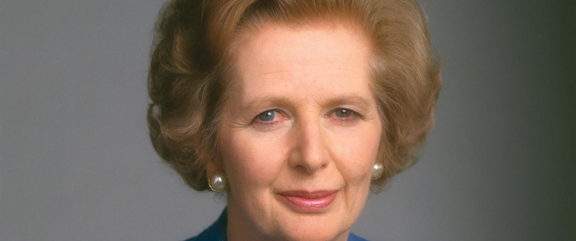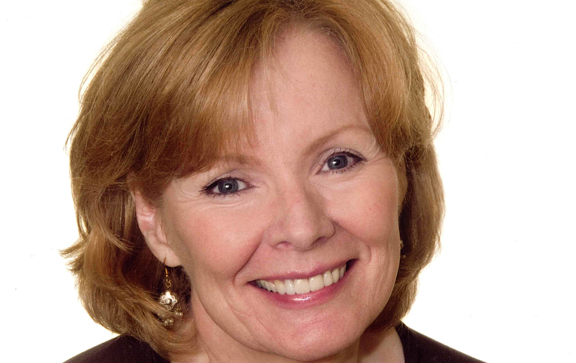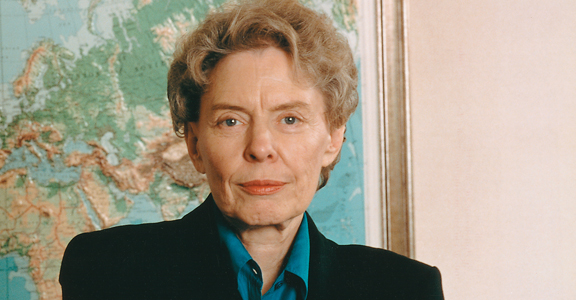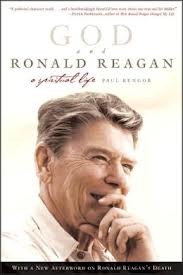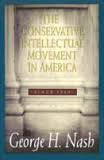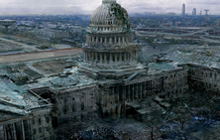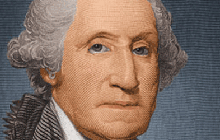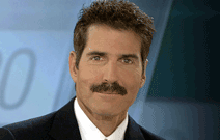As an added resource for considering the Reagan Revolution, the following “Pro” side from ProCon.org is included. Note that our presenter, George Nash, is one of those quoted. The full interchange including the Con side can be found here: (Source)
PRO (yes)
Margaret Thatcher, MA, former Prime Minister of Britain, stated in a June 11, 2004 “Eulogy for President Reagan” on www.margaretthatcher.org:
“We have lost a great president, a great American, and a great man, and I have lost a dear friend.
In his lifetime, Ronald Reagan was such a cheerful and invigorating presence that it was easy to forget what daunting historic tasks he set himself. He sought to mend America’s wounded spirit, to restore the strength of the free world, and to free the slaves of communism… His policies had a freshness and optimism that won converts from every class and every nation, and ultimately, from the very heart of the ‘evil empire.’
He won the Cold War, not only without firing a shot, but also by inviting enemies out of their fortress and turning them into friends.”
William F. Buckley Jr., Founder and former Editor-at-Large of the National Review, was quoted in a Mar.-Apr. 1997 Policy Review article titled “‘There You Go Again’: Liberal Historians and the ‘New York Times’ Deny Ronald Reagan His Due” by Alvin Felzenberg, as having said:
“Reagan had the best intuitive sense of priorities of any president in the postwar period, when it became a constant struggle to know what to pay attention to. His designation of the Soviet Union as an ‘evil empire’ froze the blood of international diplomacy, but agitated the moral imagination and did more to advance U.S. national objectives than a year’s Pentagon spending. Speaking of which, Reagan was exactly correct in knowing that the resources of the U.S. could not be matched by those of the enemy. His willingness to install theater weapons in Europe, to explore anti-missile technology, and to commit great sums to defense effectively disarmed the potential aggressor. And then who, more resonantly than he, made the case against Big Government? Could he have known that a Democratic president, seven years after Reagan left office, would serve as an echo chamber on the matter of an end to Big Government?
Reagan belongs on Mount Rushmore, and he’ll be there, after the carpers die off.”
Peggy Noonan, author and former Special Assistant and Speechwriter for President Reagan, wrote in a June 5, 2004 article titled “As President, Reagan Was a Giant” on www.msnbc.com:
“Ronald Reagan was a great communicator not because he said things in an unusual way but because he said great things – things that were true and needed saying. Those on the left in his day always thought Reagan had some magical way of expressing himself. He didn’t. It was what he said that was important, not how he said it…
Reagan brought a constellation of virtues to the office of the presidency – guts, compassion, humor, a lack of pretension, a willingness to face the world and tell the truth, a willingness to make decisions and stand by them – and his leadership changed the world, and for the better. As president, he was a giant.”
George H. Nash, PhD, Senior Fellow at the Russell Kirk Center for Cultural Renewal, was quoted in a Mar.-Apr. 1997 Policy Review article titled “‘There You Go Again’: Liberal Historians and the ‘New York Times’ Deny Ronald Reagan His Due” by Alvin Felzenberg, as having said:
“As the 1980s recede into history, three achievements of Ronald Reagan loom larger. In a time of dangerous drift and malaise, he restored Americans’ sense of self-confidence and greatness. He transmuted American conservatism from theory to practice, undermined the intellectual pretensions of long-regnant liberalism, and decisively shifted the paradigm of political discourse for the rest of the 20th century. Above all, he mobilized the resources — rhetorical, military, and diplomatic — that put Soviet communism on the road to extinction. As time passes, Reagan’s stature rises — a sure sign that he will be remembered as one of our most successful and important presidents.”
John P. Diggins, PhD, former Distinguished Professor of the Graduate Center of History at the City University of New York (CUNY), wrote in his 2007 book Ronald Reagan: Fate, Freedom, and the Making of History:
“My belated respect for [Reagan] grew from appreciating his boldness in dealing with the three miseries of the modern era – one terrifying, the other crippling, the third inhibiting.
The first abomination was a suicidal nuclear arms race of such potential massive destruction that it threatened the world with extinction; the second, an expanding welfare state that had made the poor helplessly dependent, reduced them to debilitating objects of pity, and destroyed any hope for self-esteem; the third, a joyless religious inheritance that told people their kingdom was not of this world and they needed to be careful about pursuing happiness in case they came to enjoy it. Reagan, it is now clear, delivered America from fear and loathing. He stood for freedom, peace, disarmament, self-reliance, eartlhy happiness, the dreams of the imagination and the desires of the heart.“
Richard Reeves, ME, Senior Lecturer at the University of Southern California’s Annenberg School of Communication, is quoted in the 2003 book The Politics Presidents Make: Leadership from John Adams to Bill Clinton by Stephen Skowronek:
“Reagan had come into the oval office at a time when the man in it… was declaring political bankruptcy and important voices outside it, in the press and the academy, were decrying the end of leadership. They were wrong. The new President made the system work… The leader was an extraordinary man.”
Jeane J. Kirkpatrick, PhD, former US Permanent Representative to the United Nations, was quoted in a Mar.-Apr. 1997 Policy Review article titled “‘There You Go Again’: Liberal Historians and the ‘New York Times’ Deny Ronald Reagan His Due” by Alvin Felzenberg, as having said:
“Nothing but liberal prejudice can prevent some distinguished Democrats (which most historians are) from discerning the extraordinary achievements of Ronald Reagan. I mention just two: his crucial role in rebuilding American and Western military strength after a period of Western decline and Soviet expansion, and his great success in demonstrating the superiority of free markets and free societies over socialism — especially, but not only, Marxist socialism. His leadership in these achievements strengthened peace and expanded freedom.
This is a president whose deliberate policies produced seven years of economic growth…after Democratic economists said that was impossible.”
Jack Wheeler, PhD, Editor-in-Chief of To the Point, wrote in a June 8, 2004 Washington Times article titled “The ‘Great-Souled Man’; Reagan Was a Classic”:
“Five years ago, in February 1999, I wrote the following tribute to this extraordinary man.
‘This coming Sunday, Feb. 6, will be the 88th birthday of the greatest president of the 20th century: Ronald Reagan. That Reagan’s achievements exceed those of any president since Washington and Jefferson will unquestionably be the judgment of future historians…
[H]e was an extraordinarily loveable, likeable, good and decent human being, a man whom Aristotle would have said possessed a ‘great soul.’ Take the time this Sunday to reflect on the achievements of Ronald Reagan, on how much you and all Americans owe him a debt of thankfulness and gratitude.
America was truly blessed to have a man such as him to come to her rescue and to raise her from despairing depths to the pinnacle of historic success we all stand upon today.'”



